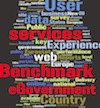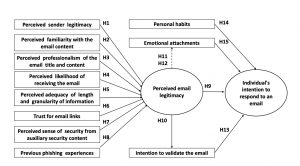EU ministers: accessible, interactive and customised online public services in Europe by 2015
Viviane Reding, European Commissioner for Information Society and Media, added: “The Malmö declaration is an encouraging signal sent from Member States towards the achievement of more effective cross-border services and the completion of the Single Market. For such services to become a reality for most citizens there is still more to be done. Achieving government savings in the current economic climate must be a priority. Better cross-border public services must be delivered even with fewer resources available so the investment made in eGovernment must be maximised. The lives of citizens and businesses can be made increasingly easier if they can benefit from efficient public services ranging from simple registration of life events such as births and residence, business services such as company registration and information or more sophisticated applications including those relating to tax, VAT or customs declarations.”
The declaration signed last night in Malmö by the EU ministers outlines a joint forward-looking vision and defines policy priorities to be achieved by 2015. The key objectives that Member States together with the Commission aim to achieve in the next five years are:
- to empower businesses and citizens through eGovernment services designed around users’ needs, better access to information and their active involvement in the policy making process;
- to facilitate mobility in the single market by seamless eGovernment services for setting up business, for studying, working, residing and retiring in Europe;
- to enhance the effectiveness and efficiency of government services by reducing the administrative burden, improving organisational processes of administrations and using ICT to improve energy efficiency in public administrations which will result in a greater contribution to a sustainable low-carbon economy.
The European Commission is already working in close cooperation with Member States to set concrete targets for the eGovernment agenda in Europe and will launch an action plan in the second half of 2010 proposing concrete measures to achieve the objectives set out in the ministerial declaration.
The empowerment of citizens and businesses is already supported today by a large number of eGovernment services. Recent figures from the eighth benchmarking report ordered by the European Commission on eGovernment in Europe, released today at the fifth ministerial conference, indicate that the quality and availability of online government services have been on the rise in Europe in the last two years: 71% of the public services measured are fully available online through portals or websites, while this was only 59% in 2007. Austria, Malta, Portugal, the United Kingdom, Sweden and Slovenia are leading countries in the assessment of availability of services. Poland, Slovakia, Lithuania and Latvia are making important progress but differences across Europe remain significant.
The report shows also an increased degree of interaction between service providers and users, where Europe stands at 83%, compared to 76% in 2007 (see annex for table). This year’s report looks at the availability of eProcurement, which aims at improving public procurement. It is now at around 60% in the EU, still far from the 100% target for 2010 set by the i2010 eGovernment action plan.
Related information:
– eGovernment Ministerial Declaration
– Benchmarking documents
– eGovernment Benchmark Survey 2009 – Smarter, Faster, Better eGovernment




